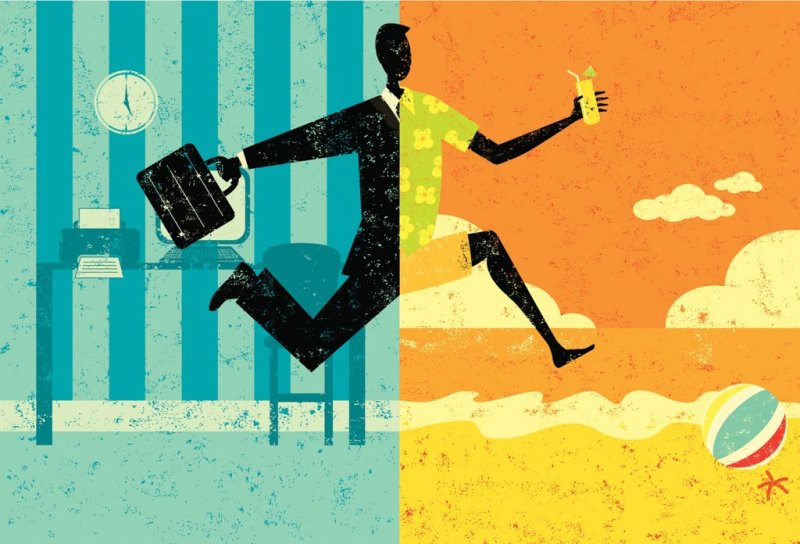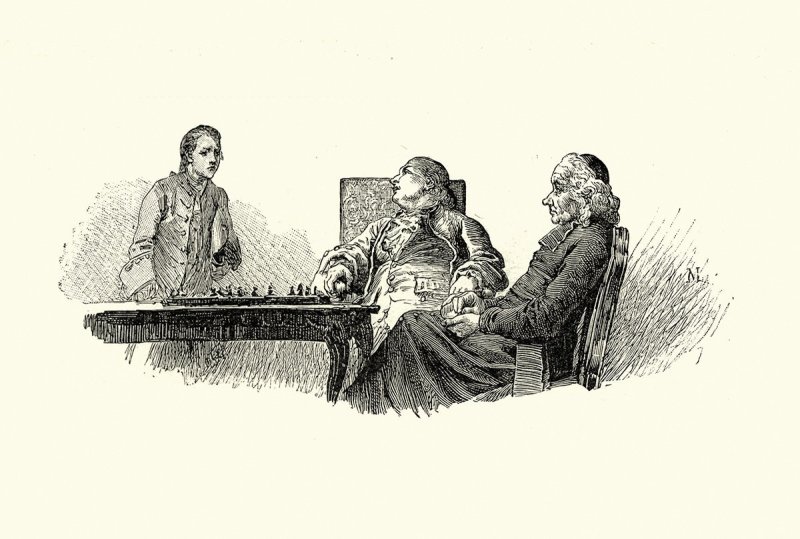
The author Stuart Brown, M.D., details the intriguing encounter between a twelve-hundred-pound Polar Bear and a Canadian Eskimo sled dog in the book Play: How It Shapes the Brain, Opens the Imagination, and Invigorates the Soul.
The dog, staked near a camp, suddenly spots a polar bear approaching. It’s November, and since the sea is not yet frozen, bears haven’t been able to hunt for seals. In other words, this particular bear is starving. The bear continues toward the dog, seemingly sizing up its next meal. But something strange and unexpected happens. The dog, obviously outmatched by a long shot, bows its head and begins wagging its tail. The bear then approaches the dog in a loping manner, and a moment later the two of them are wrestling with each other. An acrobatic dance of sorts commences in the snow, the two softly nipping at each other and pulling on each other’s fur. After about 15 minutes, the bear departs, seemingly uplifted by the friendly and playful encounter, even if still emaciated and hungry.
The bear could have easily devoured the dog to satisfy its pangs of hunger, yet there was another, more powerful impulse that it acted on, a desire that was greater than its own survival.
It was the desire to play.
Play is a common activity among many animals, especially mammals with high cognitive abilities such as canines, felines, dolphins, primates, and, of course, human beings. Playing is built into our very nature. While this may not be a revelatory finding, and even though most of us would admit there is something inherently good and nourishing about play and recreation, many of our behaviors indicate otherwise. Children today play much less than children did only a few decades ago, mostly because of the heightened importance placed on achievement and the preparation for adulthood. And for adults, play and recreation has given way increasingly to societal pressures to be ever more productive. We may admit that time spent in play and recreation is important, but most of us feel it’s also superfluous, perhaps even unessential to our lives.
__________
Who are you called to be?
Pursue your purpose at PLNU.
__________
However, it turns out that play, recreation, and leisure are necessary for a full and flourishing life for a host of reasons. Beyond the physical and mental benefits — and there are many — they can even draw us closer to God.

Play, Leisure, and Recreation
When we think of play as adults, unless we are referring to participation in an organized sport or performance, we don’t normally use the term play. There is a specific type of play that children engage in that adults don’t. There are certain social and psychological developmental reasons why play is particularly important for children. However, if we widen our definition of play to include what we would consider recreational or leisurely activity, then we see that human beings continue to play their entire lives. In his book, Brown defines play as having the following properties: “apparently purposeless activity (done for its own sake), voluntary, inherent attraction, freedom from time, diminished consciousness of self, improvisational potential, and continuation desire.”
With this in mind, much of the activities we do can be seen as play: from playing an instrument to writing poetry to watching a movie to making jokes to dancing at a party. In fact, the arts themselves — music, film, literature — are a complex and highly developed form of play. This doesn’t mean art can’t also have other purposes — such as being morally or culturally illuminating — but that at our core we create and engage art because, in some sense, it’s fun.
With this in mind, much of the activities we do can be seen as play: from playing an instrument to writing poetry to watching a movie to making jokes to dancing at a party.
We don’t need to be told about the value and necessity of work. Yes, work is necessary, and in order to put bread on the table and a roof over our heads we admit that we must work. It’s one of the first questions we ask our children: what do you want to be when you grow up? And while we don’t necessarily expect them to have an answer — or end up doing what they say they will — we’re already priming them to think about work. On the other hand, play, recreation, and leisure are seen as ancillary — things we can do without if we had to. However, similar to a lack of play in children, a lack of recreation can have grave consequences for adults.
Max Butterfield, Ph.D., PLNU professor of psychology, pointed to the role of recreation in rejuvenating us and calming us down.
“We often find ourselves very stressed all the time, and so our cortisol levels are way up,” Butterfield said. “This has negative downstream consequences.”
Increased and prolonged cortisol levels can lead to lack of sleep, digestive problems, headaches, lack of energy, and even high blood pressure and heart disease.
“For most people, the only way to de-stress is to have some form of leisure activity,” Butterfield explained, citing that it has been proven that recreation can calm us down and make us more healthy. “Without leisure built into our everyday lives, we’re always going to be fighting this losing battle against cortisol.”
Brown comes to a similar conclusion about the health benefits of play, writing that “many studies have demonstrated that people who continue to play games, who continue to explore and learn throughout life, are not only much less prone to dementia and other neurological problems, but are also less likely to get heart disease and other afflictions that seem like they have nothing to do with the brain.”
There is actually a term in Japanese, “karōshi,” which translates literally to “overwork death.” People in Japan, South Korea, and China have died due to stress-induced heart attacks and strokes from extreme work without rest or recreation. Ultimately, a complete absence of play, recreation, and leisure can even be fatal.

A Sign of Our Humanity
Aristotle placed great importance on recreation, or as he called it, leisure. In fact, he believed that we needed to have time for leisure in order to be fully human (therefore, those in his society who only worked without time for leisure were to him incapable of being fully alive). While today we may use the term leisure to mean mindlessly vegging out on the couch or tanning on some breach, leisure, for Aristotle, was specifically the engagement in some activity that allowed for human flourishing — the discussion of philosophical concepts, the listening to music, the reading of poetry. Leisure was not merely the absence of an activity, or even the lack of work, but rather an active posture of receiving and being.
Ultimately, a complete absence of play, recreation, and leisure can even be fatal.
The German philosopher, Josef Pieper, Ph.D., wrote a book titled Leisure: The Basis of Culture where he explicates the necessary character of leisure in helping us achieve our potential. Without leisure and recreation, man is not more than an animal that works, sleeps, and eats. He writes:
“Leisure is the condition of considering things in a celebrating spirit. The inner joyfulness of the person who is celebrating belongs to the very core of what we mean by leisure… Leisure is only possible in the assumption that man is not only in harmony with himself…but also he is in agreement with the world and its meaning. Leisure lives on affirmation. It is not the same as the absence of activity; it is not the same thing as quiet, or even as an inner quiet. It is rather like the stillness in the conversation of lovers, which is fed by their oneness.”
Mark Mann, Ph.D., PLNU professor of theology, admits there is a relationship between leisure — the way ancient philosophers understood it — and recreation. In fact, he would use another term to define the type of fruitful recreation that we’re all called to: Sabbath.
“Sabbath, I would say, is purposeful. Rather than something that is open and vacuous, its purpose is to allow a focusing on God,” Mann said. “There’s also a sense of worship, so in a sense, Sabbath is the fulfillment of creation, the whole purpose of creation, the whole purpose of our existence. Sabbath, I think, as it’s intended by God, is therefore intended to be an intentional, restorative experience.”
Mann pointed to a form of intentional recreation that he participates in on Sundays: gardening. By being outside, trimming his rose bushes, and nourishing the plant life over which he has watch, he is rejuvenated. But Mann also realizes this form of intentional recreation that renews him and draws him closer to God may be anything but recreational for someone else. For others it might be reading a book, going on a long mountainous hike, or listening and dancing to music. However, if done with a spirit of freedom and alignment to God — even if not always conscious — such forms of recreation can be spiritually restorative.
Mann sees this type of leisure as something similar to Sabbath, where we purposefully put aside certain tasks in order to be present to God in a celebratory and rejuvenating frame of mind. This proves true on a biological level, since play, leisure, and recreation have been shown to be restorative to the body. But it isn’t only something that restores us so we can work more, it is the participation in being. Play and recreation can be celebratory, allowing us to live out our created humanity. But can play, recreation, and leisure go too far?
A Life of Only Fun and Games?
Many Christians in the past have struggled with the role of play, recreation, and leisure in their lives. To some, including John Wesley, all of our free time should be spent in direct and explicit devotion to God. If you had time to play, then you had time to pray, do spiritual reading, or serve the poor. Sam Powell, Ph.D., a PLNU professor of theology, explains that Wesley once gave serious thought to whether one could enjoy the taste of grapes or the smell of a rose without incurring temptation. Wesley settled on yes, though only with caution.
Powell looks to the Puritans, a group of people well known for their commitment to rooting out any semblance of pleasure that stemmed from anything other than God.
“In Elizabethan England, the Puritans were very negative about the theater,” Powell shared. “There were some valid reasons for it, it could be obscene and so on, but the whole idea of the theater rubbed them the wrong way. For them, they were not here for entertainment, but had a higher calling.”
Any idle hour that could be wasted on trivial activities like fun and games could be spent instead serving God.
“There was a real emphasis on careful stewardship of time. God had given us this time, and so we’ve got to use it in a wise way,” Powell continued. “So a rather long list of seemingly innocuous activities were just regarded in tremendous suspicion or total rejection: card playing, pool shooting, theater, secular music, all that stuff. Not just because it might have a bad effect on your character, but also because you should be making better use of your time.”
There is still much suffering in the world, and a focus on play, recreation, and leisure at the expense of working to alleviate suffering is disordered.
Of course, sentiments have changed since, and activities like attending the theater and playing board games aren’t likely to draw a disdainful eye from even the most ascetical of Christians. Yet, this fear of play still has roots in how many Christians worship and live their lives. There is good reason for some of this, as certainly life isn’t only about play, recreation, and leisure. There is work that needs to be done, both materially for our livelihood and for the Kingdom of God. There is still much suffering in the world, and a focus on play, recreation, and leisure at the expense of working to alleviate suffering is disordered. Additionally, not all forms of play, recreation, and leisure are good, and some can certainly devolve into unhealthy, dangerous, and unvirtuous activities and behaviors. However, like all things related to the spiritual life that require prudence and temperance, it seems that play, recreation, and leisure should not be shunned altogether as trivial and wasteful or extolled immoderately at the expense of God and neighbor.

Play as Prayer
Is there something we can learn from our play, in participating in a state of being that isn’t overly concerned with what “use” we have to others? It is difficult because in working we place great value on our productivity, but when we play, though we might lose or win in a certain sense, we don’t speak in terms of productivity. We don’t say this game was successful because it produced an adequate amount of rejuvenation, or that this joke was optimal because it made me laugh to a specific degree. When we play, we simply do it for the sake of doing it — we are ourselves when we play and remain unconcerned with sheer productivity.
While we say there is no purpose from a productivity standpoint, it seems play can still be purposeful in celebrating our humanity and the joy of creation. A life without play, humor, art, and music would not be a life at all, but it’s exactly in these moments that aren’t “productive” — where we’re present to simply being and enjoying — that we may best honor God.
C.S. Lewis echoed this notion, arguing that things “like philosophy, like art, like the universe itself” have no survival value but are among “those things which give value to survival.” Reframed in this way, play, recreation, and leisure may simply make life worth living.
Powell believes that sometimes as Christians we have focused too much on a disembodied spiritual life and not enough on our physical life. After all, God did create us to be both body and spirit — and to live as a full human we are to be both fully alive in body and soul.
“In the Christian tradition we’ve emphasized we’re made in God’s image, with a lot less attention paid to the fact that we’re also like the animals in certain ways,” Powell explained. “What if we take that seriously? What if we take seriously the notion that humans are beings who are intrinsically playful? Just look at the phenomenon of jokes. What a weird thing. People tell jokes and in fact we have a professional class of people, that’s all they do and we give them money to create jokes and make us laugh. Is that something significant we should think about?”
Hence the creation is God’s play, a play of his groundless and inscrutable wisdom. It is the realm in which God displays his glory.
—Jürgen Moltmann, Ph.d.
Powell alluded to the mystery that is inherent in our desire to play and celebrate our humanity in ways that don’t have some blatant productive outcome. This is similar to the circumstances under which God created the world — not because he had to for some reason, but because he wanted to for his own delight. In Jürgen Moltmann’s book, Theology of Play, Moltmann sees God’s creation of the universe as a divine form of play, writing:
“When [a human being] creates something that is not God but also not nothing, then this must have its ground not in itself but in God’s good will or pleasure. Hence the creation is God’s play, a play of his groundless and inscrutable wisdom. It is the realm in which God displays his glory.”
Our capacity to play may be something that reveals our humanity and allows us to be more fully the mysterious and beautiful creatures that God created us to be. And, at the exhortation of St. Paul, perhaps our play, recreation, and leisure can be but more ways for us to pray without ceasing.
Putting Play to Work
If you are interested in a career helping individuals, families, or groups unlock the power of play in their lives, consider earning your master's degree in Clinical Counseling, Integrative Wellness, or Kinesiology at PLNU. If you would like to know more, please contact us. If you are ready to apply, this is a great time, and we are ready to help every step of the way.